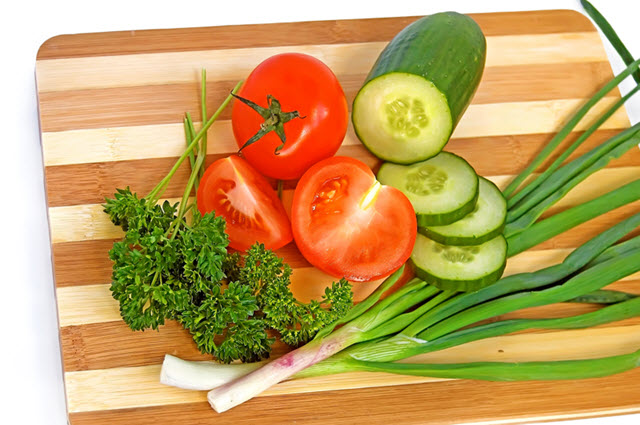Inflammation plays a large part in many different chronic diseases. But how do you know if your body is under attack from inflammation? The truth is that you could have high levels of inflammation but still feel ok.
What causes inflammation?
Whenever the body is undergoing stress from things like infection, toxins, chemicals, or irritants, the immune system gets fired up and activates certain types of white blood cells to help fight the toxins. The response from white blood cells triggers inflammation, which is a good thing when you have an infection or virus since it is the body’s way of coping with infection and toxins. But sometimes, the body’s immune system can get overcharged, leading to chronic inflammation. Chronic inflammation causes long term stress for your body, and can increase your chances of developing chronic diseases.
 What can chronic inflammation do?
What can chronic inflammation do?
Chronic inflammation causes a disturbance in our body’s ability to fight injury and disease. When people have chronic inflammation, their immune system keeps stimulating the white blood cells to attack even when there are no bacteria, viruses, or toxins present in the body. These special white blood cells then start to attack and kill healthy cells.
Chronic inflammation is associated with a number of diseases, including:
- Cancer
- Alzheimer’s
- Fibromyalgia
- Heart disease
- Arthritis
- High blood pressure
- Diabetes
Is there a test for inflammation?
The blood levels of certain chemicals are increased in people with inflammation. C-reactive protein, or CRP, is elevated with increased levels of inflammation. A normal blood level is less than 5 mg per liter, but some researchers believe that even a slight increase in CRP can increase risk for disease. If you’re concerned about the levels of inflammation in your body, you can ask your doctor about checking your CRP level.
What can I do to fight chronic inflammation?
Diet plays a large part in the levels of inflammation in your body. When you consume food, your body creates both inflammatory and anti-inflammatory chemicals called prostaglandins. When you consume inflammatory foods, such as processed food, your body secretes excessive amounts of inflammatory prostaglandins. Conversely, when you consume anti-inflammatory types of foods such as healthy fats, fruits, and vegetables, your body secretes anti-inflammatory prostaglandins that help to reduce the inflammation in the body.
There are a number of anti-inflammatory diets, including the Zone diet and Dr. Weil’s anti-inflammatory diet. These diets have some differences, but overall they follow similar recommendations. Below are some strategies that can help you to reduce chronic inflammation.
Eat lots of vegetables and fruits
- Eat 4-5 servings of vegetables daily. Eat vegetables of all colors – red, green, orange, etc.
- Try to eat 3 – 4 servings of fresh or frozen fruit. Berries are an excellent choice since they have less sugar than some other fruits.
Eat healthy fats
- Reduce the consumption of fast food and processed food.
- Avoid foods that contain trans fat (processed food such as cookies, crackers, and cakes).
- Eat healthy fats that are found in walnuts, flaxseed, salmon, and cold-water fish. If you don’t like fish, you can take fish oil supplements. The typical North American diet includes excessive amounts of Omega-6 fats (processed food, polyunsaturated oil such as corn oil, and fast foods) and not enough Omega-3 fats (walnuts, flaxseed, cold-water fish). This imbalance in the ratio of Omega-6 and Omega-3 fats contributes to inflammation.
Eat lean protein
- Beans, nuts, fish, and seeds are excellent sources of protein.
- Eat red meat sparingly.
- Eat lean meat such as turkey or chicken.
- Avoid deli and processed meat such as salami and ham.
Minimize consumption of simple carbohydrates
- Reduce the consumption of white sugar. Remember that you don’t need to add sugar to your food to consume a lot of sugar! Food such as white bread, fruit juice, soda, muffins, and jam contain large amounts of sugar.
- Try to gradually reduce the amount of sweetener you add. Over time, your taste buds will adjust to the reduced sweetness of your food.
- Use more natural sweeteners such as honey, maple syrup, and agave nectar. Use them sparingly.
Use anti-inflammatory spices
- Spice up your cooking! Some spices have potent anti-inflammatory properties. Ginger, turmeric, garlic, cayenne, onion, and curry all help to reduce inflammation.
Eat whole grains rather than refined grains
- Eat less refined grains such as white flour and white rice.
- Eat more whole grains such as whole oats, barley, quinoa, wild and brown rice, and bulgur.
Other strategies for reducing inflammation
While diet is a very important part of reducing chronic inflammation, there are also a few other lifestyle strategies that can help to lower inflammation:
- Don’t smoke.
- Exercise regularly. Aerobic exercise is best, but something as simple as going for regular walks can have positive effects on your health.
- Watch your weight. Excessive body fat is associated with chronic inflammation. A recent study found that when obese women lost at least 5% of their body weight, inflammatory markers in their blood had noticeable reductions.
- Get a good night’s sleep. Lack of sleep leads to an increase in CRP levels.
- Keep a positive attitude. Psychological stress leads to increased inflammation. If you’re stressed, try to chill out!
Reducing your risk of disease
The key to reducing your risk for disease is to adopt strategies that reduce the levels of chronic inflammation in your body. Follow the guidelines above to help you live a longer and more fulfilling life!

